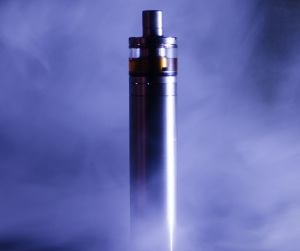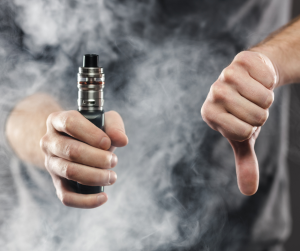We’re always hearing so much about the detrimental effect that smoking has on fertility. It compromises the quality of both eggs and sperm, increases risk of miscarriage, and can also contribute to birth defects.
Vaping, or smoking e-cigarettes, is rapidly becoming a popular alternative to smoking. Many people perceive that it has lower health risks than smoking, but is this truly the case?
 What is really inside e-cigarettes?
What is really inside e-cigarettes?
E-cigarettes, or vapes, typically contain a liquid that consists of a combination of propylene glycol, vegetable glycerin, flavourings and nicotine. Although the composition of this concoction can vary across brands, it always is a combination of harmful chemicals. The safety of chemicals in vapes is subject of ongoing debate and long term effects are not fully understood. The truth of the matter is that vapes contain substances that very likely pose health risks.
Yes, it’s more addictive than you think!
Because vapes contain nicotine, they cause very similar cravings to smoking traditional cigarettes.
In actual fact, an interesting study was done in 2019 that showed that e-cigarette users exhibit higher levels of nicotine dependence compared to traditional smokers [1]. Yes you read that right, vapes are actually more addictive than traditional cigarettes!
What do studies say about e-cigarettes and fertility?
Scientists are still unravelling the full extent of e-cigarettes’ impact on human fertility. However studies conducted on animals have shown real red flags regarding their reproductive system.
For men, the consequences are alarming. It can cause reduced testosterone level, lower sperm count, diminished sperm motility, lower sperm morphology and increase sperm DNA fragmentation. Without a doubt, all of these result in a significantly impaired fertility [2].
In women, e-cigarette use is associated with poor ovarian function in general. This leads to a reduction in normal follicles, and a decrease of available oestrogen [2].
 Does vaping impact IVF treatment?
Does vaping impact IVF treatment?
With so many fertility markers being impacted by vaping, it is only to be expected that it negatively impacts IVF outcomes as well. The exact impact of e-cigarettes on IVF outcomes is still being studied but it looks likely that the effects are as detrimental as that of smoking traditional cigarettes.
Previous studies on traditional cigarettes have demonstrated a definite decrease in sperm quality and an increased risk of miscarriage. Women on the other hand, exhibit a poor response to IVF medication and a reduced of number of eggs retrieved during the procedure. These factors all together contribute to lower success rates and an higher risk of pregnancy loss.
Although the long term effects of vaping on IVF are not yet fully understood, there are major concerns about its impact. The general recommendation for those wanting to conceive or going through IVF is to quit smoking and vaping altogether. It is undeniable that avoiding smoking in any form, will lead to better health for yourself, your partner and your future child!
Get Help to Improve your Health and Fertility!
Consulting with a healthcare professional for personalised advice is crucial! We’re here to help. Call us on 0414 067 874 or make a booking here.
Study references:
[1] Jankowski M, Krzystanek M, Zejda JE, Majek P, Lubanski J, Lawson JA, Brozek G. E-Cigarettes are More Addictive than Traditional Cigarettes-A Study in Highly Educated Young People. Int J Environ Res Public Health. 2019 Jun 27;16(13):2279. doi: 10.3390/ijerph16132279. PMID: 31252671; PMCID: PMC6651627.
[2] Montjean D, Godin Pagé MH, Bélanger MC, Benkhalifa M, Miron P. An Overview of E-Cigarette Impact on Reproductive Health. Life (Basel). 2023 Mar 18;13(3):827. doi: 10.3390/life13030827. PMID: 36983982; PMCID: PMC10053939.

